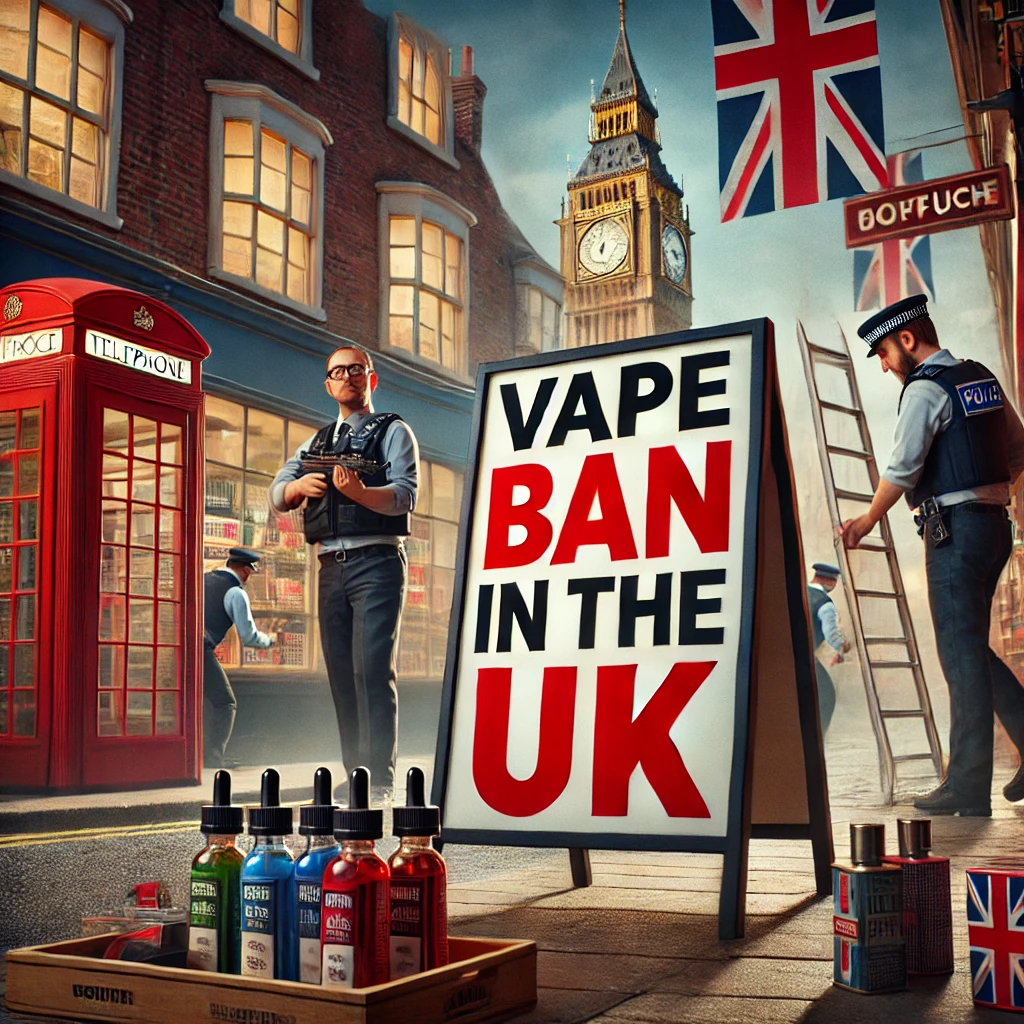The UK government has been considering a ban on vapes due to rising health concerns and increasing use among teenagers. While vaping was initially introduced as a safer alternative to smoking, recent studies and public health debates have led to stricter regulations. This article explores the reasons behind the proposed ban, its impact, and what it means for vapers and businesses.
The Evolution of Vaping in the UK
Vaping has come a long way since its introduction as a smoking cessation tool. Initially marketed as a safer alternative to traditional cigarettes, vaping gained significant popularity among smokers looking to quit. Public Health England even released a study stating that vaping was 95% less harmful than smoking. However, over time, concerns over its safety, addiction potential, and influence on younger demographics have shifted the narrative.
Why is the UK Considering a Vape Ban?
1. Health Concerns
One of the major reasons behind the potential vape ban in the UK is growing evidence of health risks. While vaping is considered less harmful than smoking traditional cigarettes, it is not risk-free. Studies have linked e-cigarettes to respiratory issues, heart problems, and other health concerns.
Research shows that e-cigarettes contain nicotine, which is highly addictive, and harmful chemicals such as diacetyl, volatile organic compounds, and heavy metals. Some vapers have also reported lung damage, often referred to as “popcorn lung,” though more research is required to establish long-term effects.
2. Rise in Teenage Vaping
The UK has witnessed a sharp increase in vaping among teenagers. Disposable vapes with fruity flavors and appealing packaging have made them highly attractive to younger users. Government and health officials are worried about nicotine addiction in teenagers, which could lead to long-term health problems.
A 2023 survey by Action on Smoking and Health (ASH) found that nearly 20% of teenagers aged 11-18 had tried vaping. The accessibility of vapes in corner shops and online stores has contributed to this rise. Despite the legal age restriction of 18, many teens still manage to obtain vape products.
3. Environmental Impact
Disposable vapes contribute significantly to environmental pollution. These single-use devices contain plastic, lithium batteries, and nicotine residues, all of which pose serious disposal challenges. A ban on such products is seen as a way to reduce waste and protect the environment.
According to environmental organizations, discarded vapes contribute to toxic waste and electronic pollution. Since many users dispose of these devices improperly, lithium batteries can end up in landfills or water bodies, posing risks to wildlife and ecosystems.
4. Regulatory Challenges
Despite strict laws on nicotine content and advertising, enforcement remains a challenge. Many unauthorized and counterfeit vaping products enter the market, posing risks to users. A complete ban is being considered to eliminate these regulatory loopholes.
Black market vapes often contain unregulated chemicals that can be more harmful than legally produced ones. Without proper quality control, consumers may inhale dangerous substances unknowingly. Authorities have struggled to control the influx of such illegal products, prompting discussions of a complete ban.
Impact of a Vape Ban
On Consumers
A ban on vapes will impact millions of users who have switched from smoking to vaping. Many vapers argue that banning e-cigarettes could push them back to traditional smoking, which is proven to be more harmful.
A significant portion of the vaping community consists of former smokers who turned to e-cigarettes to quit their smoking habit. If a complete ban is enacted, these individuals might struggle to find an alternative, leading some back to tobacco use. Public health officials must weigh these potential consequences carefully.
On Businesses
The vaping industry in the UK is worth billions of pounds. Thousands of jobs depend on the sale and production of vape products. A ban could lead to job losses, business closures, and economic downturns in this sector.
Retailers, online vape stores, and manufacturers would face massive revenue losses, potentially affecting the broader economy. The vape industry is not just about e-cigarettes but also includes e-liquids, accessories, and maintenance products, all of which contribute to economic activity.
On Public Health
While banning vapes may reduce teenage usage, it could also limit access to smoking alternatives for adults. Public health experts are divided on whether a complete ban is the right approach or if tighter regulations would be more effective.
Some experts argue that rather than banning vapes outright, stricter regulations on advertising, packaging, and accessibility should be implemented. The UK’s successful smoking cessation programs have benefited from vaping products, and removing them could have negative repercussions.
Alternative Solutions to a Full Vape Ban
Instead of a total ban, some experts suggest alternative measures:
- Stronger Age Restrictions: Enforcing stricter age verification systems to prevent underage vaping.
- Limiting Flavors: Banning fruity and candy flavors that attract young users while allowing tobacco and menthol flavors.
- Better Disposal Programs: Encouraging responsible recycling and disposal of vape devices to reduce environmental damage.
- Higher Taxes: Increasing taxes on vaping products to discourage excessive use without banning them completely.
- Strict Retail Regulations: Implementing harsher penalties for stores that sell vapes to minors.
The Future of Vaping in the UK
The UK government is still debating the extent of vape regulations. While some advocate for a complete ban, others argue for stricter control rather than prohibition. The decision will significantly impact public health, businesses, and consumers.
Government bodies such as the Medicines and Healthcare products Regulatory Agency (MHRA) are conducting further research to determine the best course of action. Additionally, consultations with public health experts, industry representatives, and advocacy groups will play a crucial role in shaping future policies.
Conclusion
The potential vape ban in the UK is a controversial topic with strong arguments on both sides. While health concerns and teenage vaping are valid issues, a complete ban may have unintended consequences. A balanced approach with tighter regulations, awareness campaigns, and environmental responsibility may be the best way forward.
Ultimately, the goal should be to protect public health while considering harm reduction strategies for smokers. Whether the UK imposes a full ban or implements stricter regulations, the future of vaping remains uncertain. Consumers, businesses, and policymakers must engage in open dialogue to ensure the best outcome for all stakeholders.

